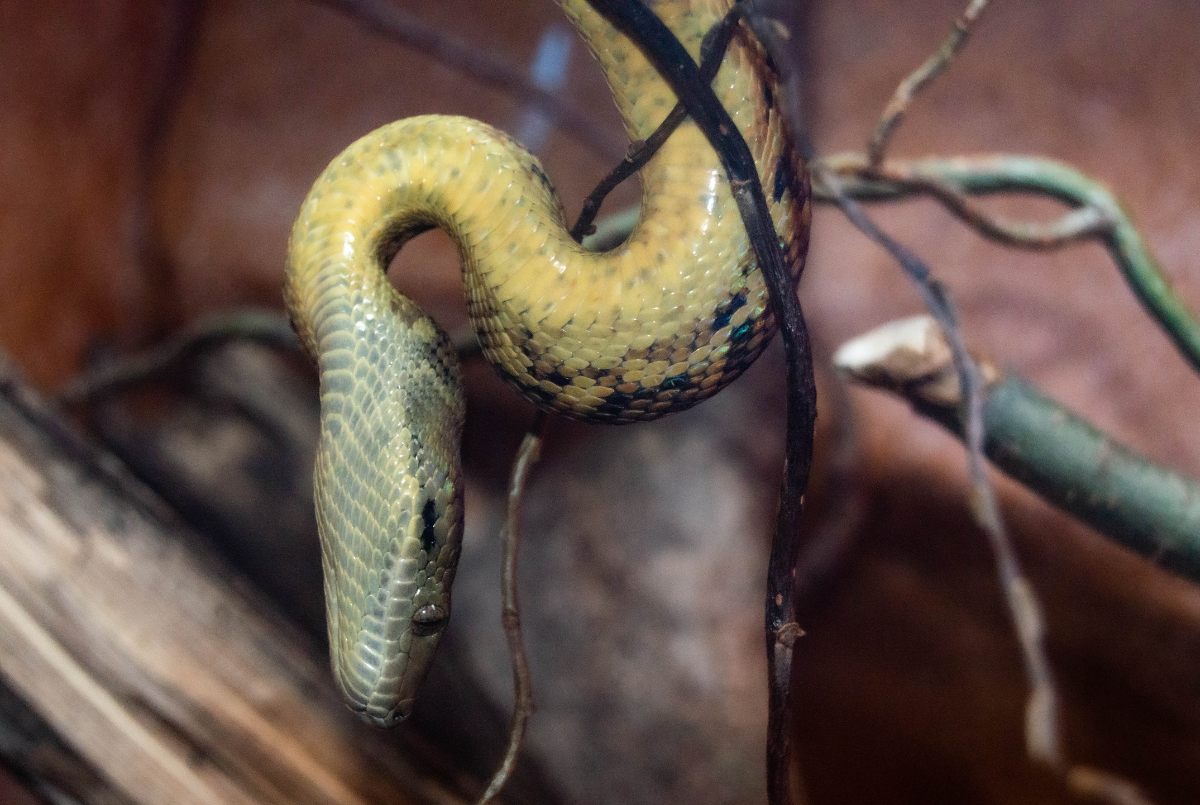Jamaican Boa

Basic Information:
Scientific Name: Chilabothrus subflavus
Habitat: Jamaican boas can be found in the limestone forests of Jamaica and Great Goat Island.
Diet: Young Jamaican boas feed on small lizards and frogs while adult boas feed on native bats and birds as well as rats and other rodents.
Size: 5 to 7.5 feet long
Weight: About 11 pounds
Lifespan: 23.7 years for males and 15.8 years for females according to AZA Species Survival Statistics
Distribution Map:
I.U.C.N. Conservation Status:

What does this mean?
Vulnerable – a species determined by the International Union for Conservation of Nature (I.U.C.N.) to possess a high risk of extinction as a result of rapid population declines of 30 to more than 50 percent over the previous 10 years (or three generations), a current population size of fewer than 1,000 individuals, or other factors.
Our "On-Exhibit" Jamaican Boa:
Kaida – Born September 22, 2018
Our "Ambassador" Jamaican Boa:
Jamari – Born September 22, 2018
About Jamaican Boas:
Endemic to the Caribbean Island of Jamaica, Jamaican boas are one of the top predators of their habitat. They move and hide among vines during the night to stalk and then ambush their prey. Despite their adept nature as predators, though, the conservation of this species has proven to be difficult. Due to a combination of invasive predators, poaching, and a shrinking habitat from human expansion, Jamaican boa populations have been on the decline. Conservation efforts are being made to protect them, but we are still uncertain of the full range of this species. This has made studying and assessing Jamaican boas extremely difficult.
Did You Know?!
- Jamaican boas are ambush predators. They camouflage themselves amidst tree branches and vines and wait for unsuspecting prey to fly past. When they do, these boas will lunge out of their hiding places and quickly wrap around their victim and constrict until they perish.
- Jamaican boas are nocturnal and arboreal.
- Due to their VULNERABLE status, there is a European Breeding Programme (EEP) for the Jamaican boa. There are around 150 Jamaican boas currently in zoos around the world that are part of this program.
